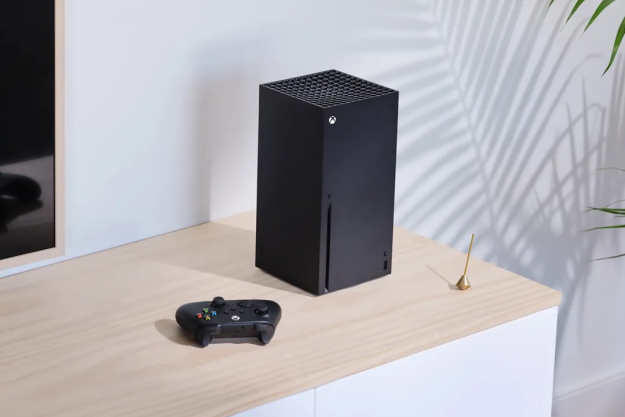While the whole concept of “console wars” is woefully outdated, the launch of every new generation of video game systems inevitably turns into a debate over who’s ‘winning’. And with Microsoft and Sony having shown the majority of their hands about what to expect this holiday season (with two notable data point exceptions), the back and forth is already underway.
Those exceptions — price and launch date — are not insignificant ones. But, in general, the information people need to decide if they want an Xbox Series X or PlayStation 5 is already available.
This battle between Microsoft and Sony, though, could be notably different than anything we’ve seen before. Game consoles are already seeing significant competition from the prevalence (and low cost) of quality mobile games. New platform challenges are on the horizon. And that could make this console generation the most interesting — and competitive — in decades.
What’s not known
Not knowing when the PS5 and Xbox Series X will launch nor how much they will cost isn’t something to shrug off entirely, but the lack of specifics on that data isn’t quite as big a black hole as it might appear.
Date? Microsoft, last week, confirmed a November launch when talking with Bloomberg — and historically has opted for November 15 or 22. The PS3 and PS4 came out on November 17 and November 15, respectively — and there’s no reason to think Sony will vary much from that formula.
Price, admittedly, is a bigger wildcard. If one system is $100 cheaper than the other, that could impact initial demand. But that’s unlikely. Both manufacturers have been burned by launching systems at significantly higher prices than their competitors in the past.
The biggest unanswered question, ultimately, might be supply. New consoles are always scarce at launch — in part because of higher production costs and in part because consumers lining up outside stores to get their hands on one is a great photo op, in non-pandemic times.
We’re in a pandemic, though. So launch events for new consoles likely (and hopefully) won’t be the circus they have been with previous launches. And while Microsoft and Sony are both projecting confidence about their system launches, we don’t have a firm grasp on whether the global economic shutdown had a notable effect on the number of systems they were able to produce. That could impact some of the early sales numbers.
What’s known
The technical specs of both the Xbox Series X and PlayStation 5 have been out in the wild for a long time. Both are relying on SSD hard drives and boast faster processors. Sony has touted the audio prowess of the PS5 as well, something that’s been de-emphasized of late, perhaps because that’s hard to showcase without in-person demos.
Tech specs don’t sell systems, though, unless the games utilize them with aplomb. And, so far, Sony has done a better job of showcasing titles that take advantage of the next generation’s features. While both Microsoft and Sony promised games running in 4K at 60 fps, Sony took things a step further in its June presentation, with the demo for Ratchet & Clank: Rift Apart, as Ratchet jumped between dimensions in milliseconds, a subtle way to showcase just how fast new levels can load on the PS5. It was fast and furious gameplay the likes of which has never been seen before. And it could give Sony an advantage among players looking for new experiences.
Short game versus long game
Judging by the initial social media reactions to the unveiling events, Sony has done a better job of capturing the gaming world’s immediate attention. That’s not entirely surprising, given the PS4’s popularity. There was bound to be some spillover from those fans.
So, it’s not unreasonable to assume the PS5 will get more early adulation than the Xbox Series X (although that doesn’t mean you’re going to see people turning up their noses at Microsoft’s system — both will sell out for months). And Sony, perhaps, will once again take an early unit sales lead.
But here’s where things get interesting.
Microsoft is doing a couple of things different this generation. First, it’s putting a much bigger emphasis on Xbox Game Pass, an all-you-can-play flat fee service that lets people get their hands on the latest first-party AAA games, as well as an extensive back catalog, for a low annual fee. That’s a business model that has worked incredibly well in other industries — and could appeal to gamers who chafe at paying $70 per game.
It’s also one that could lure in a lot of casual gamers and fence-sitters. Yes, quality games are what sell consoles, but significant price advantages are a big lure as well.
The company is also bundling Game Pass with its xCloud game streaming service for no additional cost. That’s going to allow people to get familiar with game streaming and try the service out without feeling like they’re having it thrust upon them. And that could set Microsoft up for a long-term victory.
Game streaming is widely considered the industry’s next big thing by publishers, developers, and other industry insiders, despite the rocky start of Google’s Stadia. And Microsoft is much better positioned to handle the technical demands of streaming than Sony. Pairing it with a Netflix-like model and including new first-party releases only makes it more palatable.
Every new console generation is an exciting time. But this series could top anything we’ve seen before. It’s a multi-tiered battle that will ultimately take place on several fronts. And any time console companies are especially ferocious about turning heads, it works out very well for the players.
Editors' Recommendations
- 3 PlayStation Plus games you need to play this weekend (May 10-12)
- 3 Xbox Game Pass games you need to play this weekend (May 3-5)
- I was a PlayStation Portal hater. Now it’s one of my go-to gaming devices
- I’m secretly hoping that the leaked all-white Xbox Series X isn’t real
- Dragon’s Dogma 2’s first updates will tackle its PC performance issues



